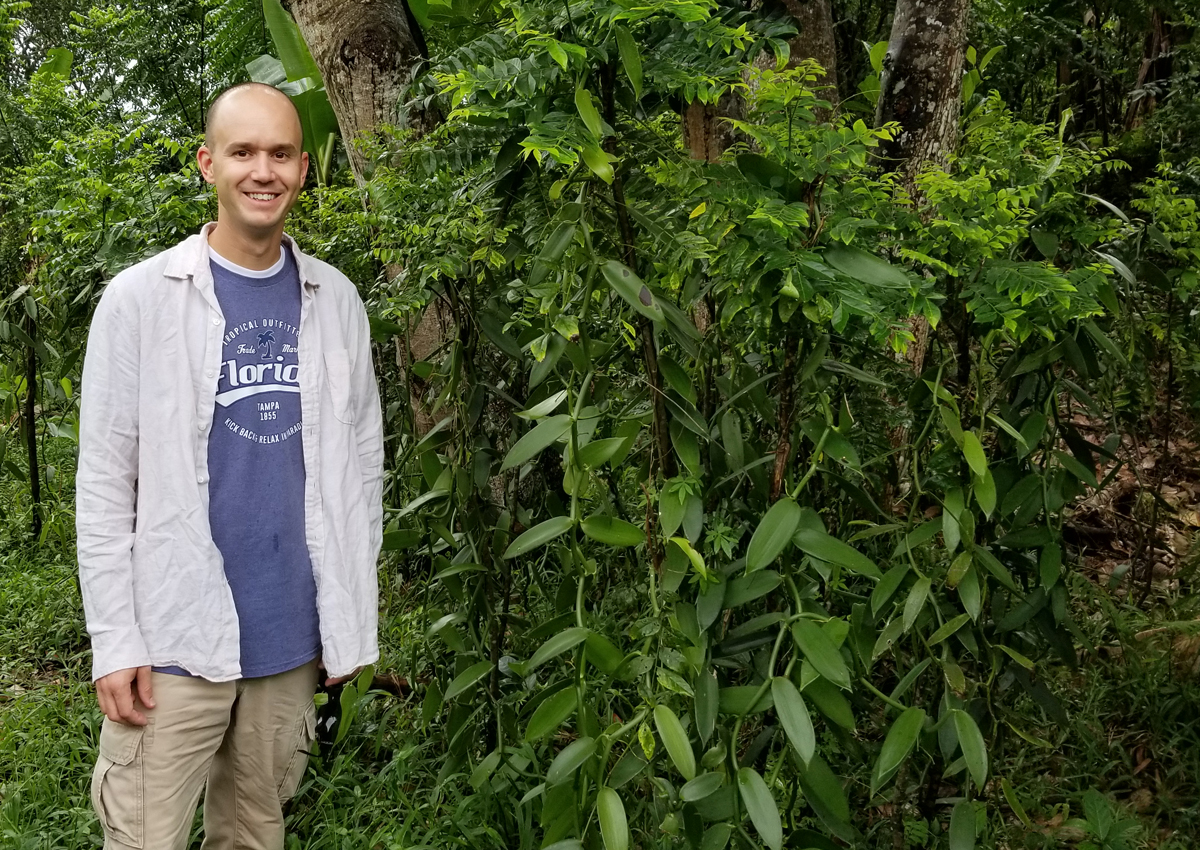
University of Florida Study Uncovers Vanilla DNA Mystery
December 16, 2020| |
Together with researchers at Elo Life Systems, a North Carolina-based food and agriculture company, Dr. Chambers co-led the generation of a "chromosome-scale" sequencing of vanilla DNA. Four vanilla species were sequenced from a collection of more than 300 varieties established at the Homestead research facility. The sequencing project provided genetic information that lays the groundwork for desired genetic traits.
The team sequenced various cultivars from the Tropical Research and Education Center (TREC) collection: Vanilla planifolia, Vanilla tahitensis, Vanilla mexicana, and Vanilla pompona. Among the critical findings in the research, Chambers explained that while all commercial vanilla plants are vulnerable to a fungal pathogen, related species such as V. pompona are resistant to the pathogen and could provide a genetic route to creating a disease-resistant V. planifolia.
"The vanilla genome will support our vanilla breeding program that seeks to improve bean quality, disease resistance, and yield while lowering production costs," Dr. Chambers said. The University of Florida currently has one of the largest vanilla diversity collections in the world, including around 300 accessions and over 20 vanilla species. While the USA is the world's largest importer of vanilla beans, Madagascar is the largest producer, supplying 80% of the world's vanilla.
For more details, read the article at the University of Florida Blog.
| |
You might also like:
- Chinese Scientists Complete Vanilla Genome Sequence
- Preserving a World Favorite Flavor
- Urgent Need to Conserve Vanilla Genetic Resources
Biotech Updates is a weekly newsletter of ISAAA, a not-for-profit organization. It is distributed for free to over 22,000 subscribers worldwide to inform them about the key developments in biosciences, especially in biotechnology. Your support will help us in our mission to feed the world with knowledge. You can help by donating as little as $10.
-
See more articles:
-
News from Around the World
- ISAAA Short Course Highlights Relevance of Integrating Research, Science-based Regulation, and SciCom in Sustainable Agri Dev't
- ISAAA Shares 2019 Global Biotech Crop Adoption to Stakeholders in the Philippines and Arab Region
- Give a Gift of Knowledge
- Webinar: Biotech Crop Adoption in 2019 and Latin America's Experience
- NBMA Validates National Biosafety Guidelines on Gene Editing in Nigeria
- University of Florida Study Uncovers Vanilla DNA Mystery
- RNAi Pesticides Could Be the Next Big Tool in Agriculture
- US FDA Has Approved First GM Pig for People with Red Meat Allergies
- Chinese Scientists Develop Rice Variety Using Ion Beam Technology
- GM Tomato Enriched with L-DOPA Offers Affordable Medicine for Parkinson's Disease
-
Research Highlights
- Soybean Gene Overexpression Offers Resistance to SDS
-
Plant
- Biotech Research Perceived With Caution Globally, but Most Support Gene Editing for Therapeutics
-
Health
- WHO Calls for Actions to Encourage Acceptance and Uptake of COVID-19 Vaccines
-
Read the latest: - Biotech Updates (February 4, 2026)
- Gene Editing Supplement (January 28, 2026)
- Gene Drive Supplement (February 22, 2023)
-
Subscribe to BU: - Share
- Tweet

